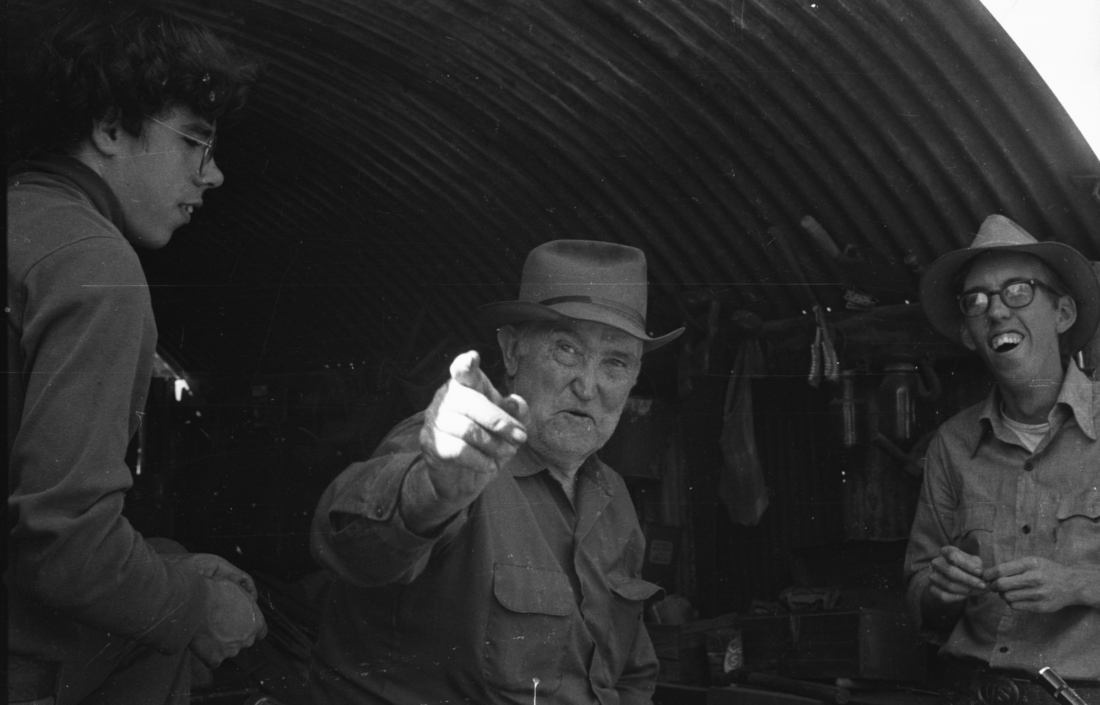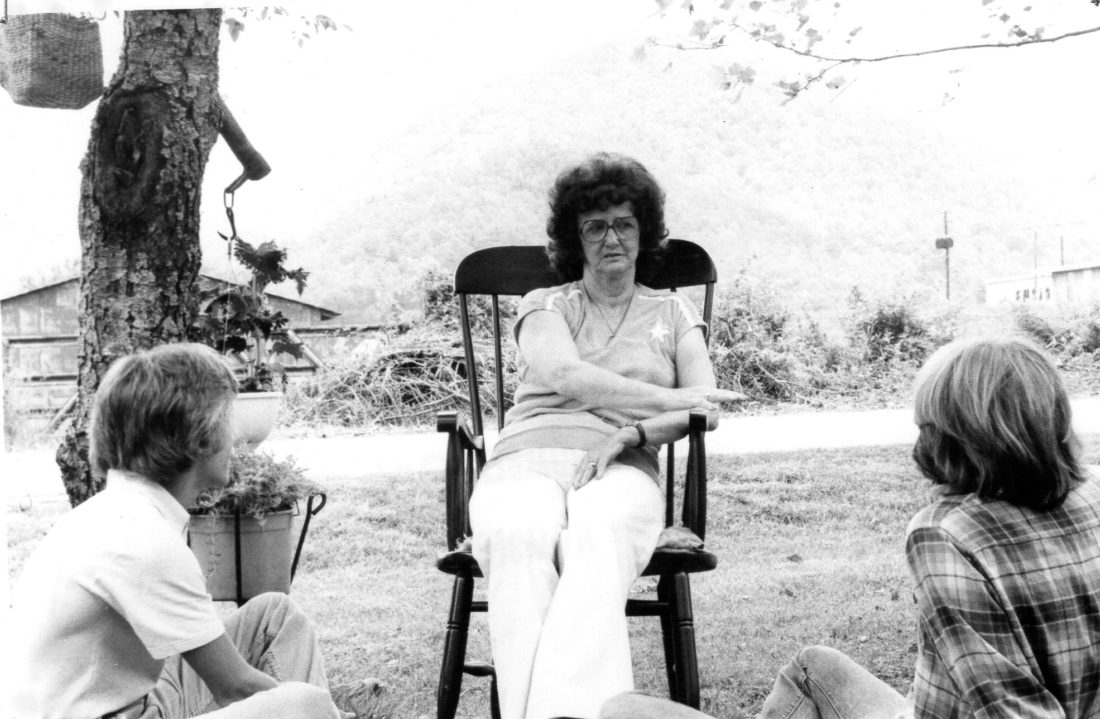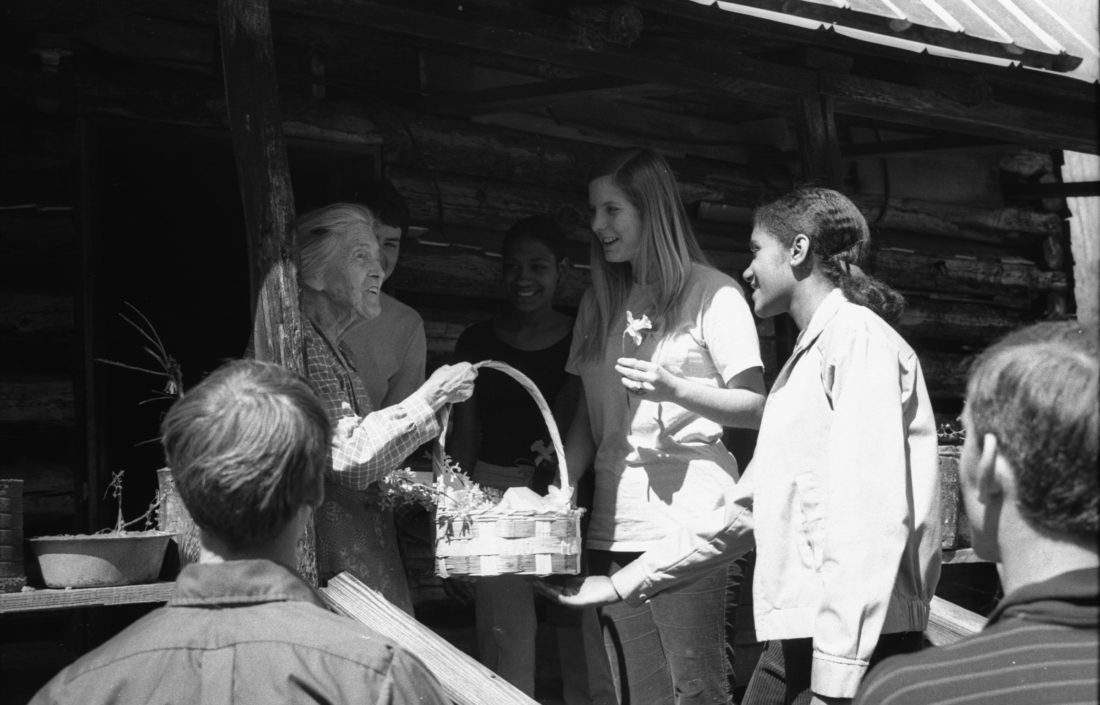As any Southerner can attest, there is no such thing as one Southern accent. The Cajun-inflected voices coming out of the bayou towns of Louisiana are immediately distinguishable from the lilt found near South Georgia’s peanut fields. The Gullah language heard on the Lowcountry’s sea islands sounds nothing like the drawl known to front porches in the mountains of North Carolina. Even between generations, sayings—and how sayings are said—vary immensely. For the researchers at Foxfire, the longstanding heritage education organization based in Mountain City, Georgia, that honors the traditions of the mountain South, preserving the language of Appalachia is as important as preserving the tales being told.

“The way people tell stories is so important to how they navigate life,” says Kami Ahrens, the assistant curator at Foxfire. “It’s about connection to community and the past.” For the last fifty-four years, Foxfire has compiled oral histories into books and magazines, sharing regional wisdom and skills such as soap making, weaving, herbal medicine, and cooking cornbread over a fireplace. The organization’s latest book, Foxfire Story: Oral Tradition in Southern Appalachia, focuses on both what mountain Southerners say and how they say it.
“We had the opportunity to go back and look at the narrative style of the stories we’ve collected over the last fifty years,” Ahrens says. The book delves into examples of “mountain speech,” including sayings, proverbs, legends, songs, pranks, long-held folk beliefs, and historical and personal anecdotes. “We’ve even sourced some of our podcast episodes from narratives in the book,” Ahren says. One such episode covers the Christmas Eve tradition of serenading while another hears various sources retell experiences from the 1918 flu epidemic. “Listening to people actually tell these stories takes it to a whole new level.”

For those unversed in the dialects of Southern Appalachia, the team at Foxfire put together a primer on commonly used words and sayings from the early days of Foxfire’s story gathering.
Here are some favorites:
Chunk: small; as in, “I was just a chunk of a boy.”
Confidence: (verb) to trust; as in, “Can I confidence you?”
Dodger (also, “turn of bread”): a cooked pan of cornbread
Fogeyism: something considered nonsense or superstitious
Gee-whiz: a type of plow
Heart dropsy: down at heart; to not have the will or spirit to forward an action
Poppin’ [one’s teeth]: to be angry
Poppycock: an “unnecessary” gathering, as in a dance party or similar social event
Rheumatism medicine: moonshine
Slick foot: to not be able to sleep at night
Splatterment: a mess or a fight, as in “You’ve never seen such a splatterment in all your life.”
Thumpin’ gizzard: one who appears heartless; someone who does evil things
White tops: daisies
“Fine as frog’s hair”
“Nigh as a pea” (meaning very close to)
“Slick as a butterbean”
“Loud as Gabriel’s trumpet”
“Flat as a fritter”
“Easy as falling off a log”
“Ugly as homemade sin”
“Pretty as a speckled pup”
“Useless as a saddle pocket on a hog”
“Busy as a bee in a tar bucket”
“Happy as a dead pig in the sunshine”








